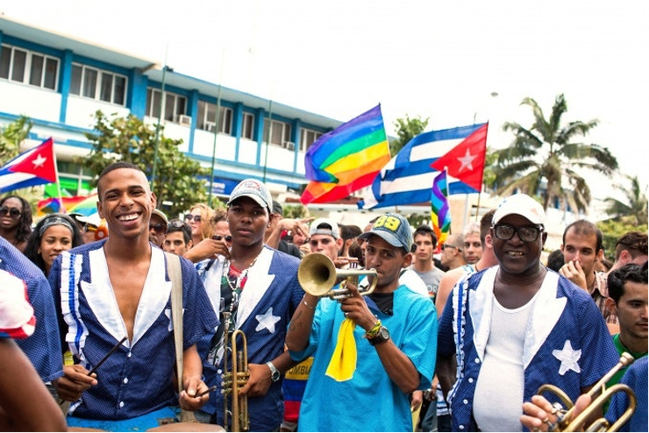|
On September 15, 2021, the National Assembly of Cuba published a new draft of the family code. The most notable amendment to the family code includes an article which would legalize gay marriage. Thousands of grassroots meetings are currently being held to debate the amendment. The discussions are guided by judges and law students, who will process the information and submit it to the National Assembly by May. The National Assembly will then approve the changes made and submit the revised code for a referendum by the second half of 2022. The amendment would reform the 1975 family code, which defines marriage as a “union between a man and a woman.” The push to amend the family code follows in the wake of the 2019 Constitutional Referendum, which strengthened anti-discrimination laws and almost resulted in the redefinition of marriage as “a union…with absolutely equal rights and obligations.” However, due to intense campaigning by conservative Evangelical and Catholic groups, the clause was scrapped. Despite the setback, Article 42 of the Constitution still prohibits discrimination based on sexual identity, “All people are equal before the law, receive the same protection and treatment from the authorities, and enjoy the same rights, liberties, and opportunities, without any discrimination for reasons of sex, gender, sexual orientation…” Although this doesn’t necessarily mean that same sex marriage is recognized, it does open the door for it to be legalized. The task of now redefining marriage is up to the new family code, and whether or not it will be ratified by the Cuban people. Regardless of the setback, Cuba is still pushing forward in regards to gay rights. The early years of the revolutionary republic were marked by persecution towards sexual minorities. From 1965-1968, gay men were sent to labor camps called UMAPS (Military Units to Aid Production) as alternative to military conscription. The camps were demolished in 1969, yet in the years that followed homosexuality remained forbidden. The second half of the 1970s, however, saw improvements in attitudes towards the gay community. Workplace discrimination towards gay people was outlawed in 1975 and homosexuality was decriminalized in 1979. Attitudes slowly improved, but at the same time there were many mistakes. For example, the 1980s started off with the Mariel Boatlift, where thousands of gay Cubans, labeled as deviants, were forced out of Cuba. Despite the horrible realities of the Mariel Boatlift, progress was still made. In 1981, the Ministry of Culture declared that homosexuality was another variant of human sexuality and that discrimination towards LGBT individuals should be condemned. Nineteen ninety-eight also saw the last explicitly anti-gay law, the Public Ostenation Act of 1930, repealed. Progress came at an even faster pace in the 1990s, and 1993 was a pivotal year for gay rights in Cuba, gay people were finally allowed to join the military and become members of the communist party. The age of consent for gay people was also made equal to that for heterosexuals. Finally, in 2010, Fidel Castro apologized for his persecution of gay people. By no means is Cuba a gay paradise, nor do gay people have as many freedoms as they do in America or Western European countries. Nonetheless, the situation for gay people is improving and in comparison to many of its neighbors and arguably some US states, Cuba is comparatively progressive. However, it’s always important to keep in mind that the road towards equity is not a smooth one, as shown in 1980 and in 2019, and at this point one can only wait with hope and bated breath that the amended family code passes. AuthorN.C. Cai is a Chinese American Marxist Feminist. She is interested in socialist feminism, Western imperialism, history, and domestic policy, specifically in regards to drug laws, reproductive justice, and healthcare. Archives March 2022
0 Comments
Leave a Reply. |
Details
Archives
July 2024
Categories
All
|

 RSS Feed
RSS Feed